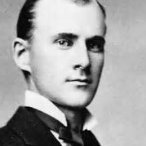Ebola discoverer says would sit next to victim on train
-
Recently Browsing 0 members
- No registered users viewing this page.
-
Topics
-
-
Popular Contributors
-
-
Latest posts...
-
76
Crime Former Boxer Sets Fire to Two Malaysian Tourists Outside Mall
Could be. And...or... the long term effects of the jinn jab / snakebite / clawt shawt coming home to roost. Get prayed up. -
2
Trump putin talks
What would satisfy you? Every fighting age man, 15-75, in Ukraine dead? -
20
THAILAND LIVE Thailand Live Sunday 10 August 2025
Police Raid Construction Site, Arrest 58 Foreign Workers Picture courtesy of Matichon. Police have raided a construction site in Chonburi, arresting 58 foreign nationals, including Chinese and Myanmar workers, for working illegally, many of them using tourist visas. Full story:https://aseannow.com/topic/1369317-police-raid-construction-site-arrest-58-foreign-workers/ -
0
Crime Police Raid Construction Site, Arrest 58 Foreign Workers
Picture courtesy of Matichon. Police have raided a construction site in Chonburi, arresting 58 foreign nationals, including Chinese and Myanmar workers, for working illegally, many of them using tourist visas. The operation was led under the orders of National Police Chief Pol Gen Kitrat Phanthuphet and overseen by Pol Lt Gen Saksira Phueakam, Commissioner of the Tourist Police Bureau, as part of a crackdown on foreign nationals engaging in unauthorised employment. Following intelligence reports, Pol Col Man Rotthong, Superintendent of the Tourist Police Investigation Division, instructed his deputies, Pol Lt Col Jetsada Thongtha and Pol Lt Col Piyapong Raksa, to execute a search warrant issued by Pattaya Provincial Court. Tourist Police officers then moved in on a factory construction project in Nong Yai district, Chonburi, where large numbers of Chinese and Myanmar nationals were reportedly working. Officers discovered 14 Chinese nationals, all holding tourist visas but unable to produce valid work permits. They were charged with “being a foreigner working without a work permit”. A further 44 Myanmar nationals were unable to present any legal documentation. They were charged with “entering and residing in the Kingdom without permission” and “working without a work permit”. All 58 suspects were taken into custody and handed over to local investigators for prosecution in accordance with the law. Police have reiterated their commitment to tightening inspections on worksites and businesses employing foreign nationals illegally, warning that both workers and employers will face legal consequences. Adapted by Asean Now from Matichon 2025-08-10 -
10
Have you met Mary Jane?
In my resent travels in the far south was shocked that there were any shops at all. There were three all open , one at lets say very weird hours never saw it closed, one was within 100 feet of my hotel , and the other surrounded by Muslim shops. In four days never saw a foreigner. As I said Dr. Doom my hunch is in hiding realizing current government is on the rocks and going no where fast. Guessing at least another month of total daze and confused government until someone wakes up to the fact that the only solution is ....... you know what. -
20
THAILAND LIVE Thailand Live Sunday 10 August 2025
Shrimp Farm Incident Nearly Costs Worker a Leg Picture courtesy of Khaosod. A 40-year-old shrimp farm worker in Chachoengsao has been rushed to hospital with a severe leg injury after her trousers became entangled in the rotating shaft of a paddlewheel aerator, twisting her leg to near amputation. Full story:https://aseannow.com/topic/1369316-shrimp-farm-incident-nearly-costs-worker-a-leg/
-
-
Popular in The Pub










Recommended Posts
Create an account or sign in to comment
You need to be a member in order to leave a comment
Create an account
Sign up for a new account in our community. It's easy!
Register a new accountSign in
Already have an account? Sign in here.
Sign In Now